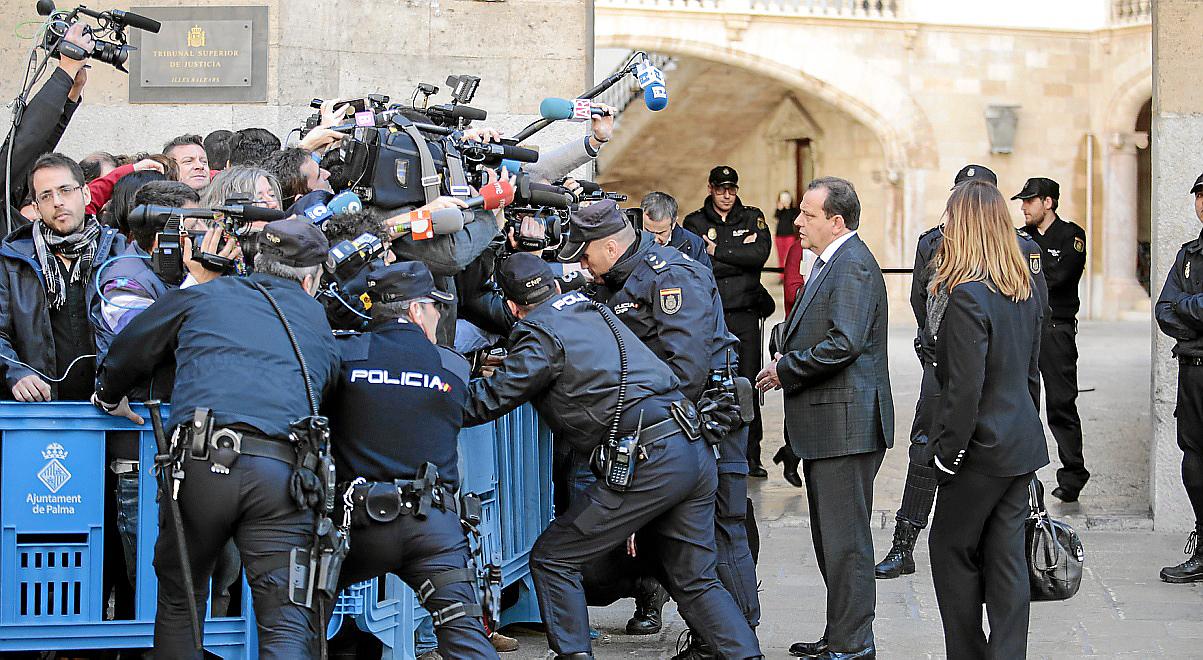He had maintained, prior to the trial, that the princess didn't have a case to answer in terms of deliberate fraud. He conceded there was culpability for civil responsibility in her having benefited unknowingly from the financial and tax affairs of the Instituto Nóos and related companies, and this was confirmed in the rulings and conclusions by the judges' panel of Samantha Romero, Rocío Martín and Eleonor Moyá. Hence, the princess has been fined 265,000 euros, which will mean she is repaid part of a bond that had been lodged with the court.
The sentences given to Iñaki Urdangarin, Diego Torres and Jaume Matas are lower than the prosecution had been calling for. Again this isn't surprising, as the prosecution typically pitches its demands at the upper level of penalty. There is something to be said about these sentences, and that is that Torres has been condemned to eight and a half years, roughly half what the prosecution had called for, and has been given a stronger sentence than Urdangarin, whose sentence is around a third of the nineteen and a half years that had been demanded.
Torres, in the opinion of the judges, is therefore viewed as being more culpable than Urdangarin. And this was the impression formed during the trial, with Urdangarin more of a willing conspirator rather than the "mastermind" (if one likes) of the business network and diversion of funds.
Reaction locally in the Balearics has also not been surprising. Juan Pedro Yllanes, one of the Balearic Podemos deputies in Congress, who had originally been lined up as the presiding judge in the trial, said yesterday that the unanimity of the members of the judges' panel gives the sentencing strength, adding that the acquittal of the princess and the guilty verdicts for Urdangarin, Torres and former Balearic president, Jaume Matas, could have been foreseen. He said that he didn't know if outcomes might have been different had he been one of the judges. He hadn't, after all, studied the evidence.
With regard to Matas, Yllanes observed that he will pass into the criminal black history of Spain, somewhat echoing the words of Balearic government spokesperson Pilar Costa. She referred to a "dark and black" era under Matas and expressed her respect for the work carried out by the justice system over several years. She suggested that the matter may not be concluded where the government is concerned, saying that the judges' rulings will be analysed by the attorney's office.
Away from the Balearics, the Royal Household declared its absolute respect for the independence of the judicial process but refrained from making any comment on the judgements handed down to the princess and her husband. An issue that will now come into focus once more is whether the princess should renounce her rights - she is currently sixth in the line of succession.
Of further political reaction, Albert Rivera, the president of Ciudadanos, which has campaigned on an anti-corruption platform, said that he didn't wish ill to anyone but that if someone does something bad then he or she should pay. He praised the judges for having withstood any pressures there may have been, concluding: "I hope that in this country, whether you are Urdangarin or Matas, justice acts the same for all. We have endured years during which corruption has taken its toll, and now is the time to clean up the wounds of that corruption."


No comments
To be able to write a comment, you have to be registered and logged in
Currently there are no comments.